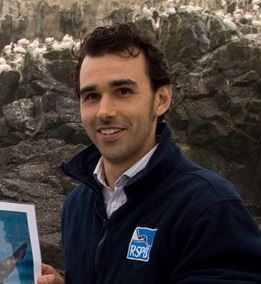September 2017
The announcement, on the 7th of September, marks a significant, and welcome, step forwards in providing much needed protection to UK seabirds.
The new site stretches 12 miles from the coast into the North Sea. Home to 200,000 seabirds, it is the most important site in the UK for Arctic, common and roseate terns as well as puffins.
The new designation builds on a number of existing Special Protected Areas (SPA) covering seabird breeding sites including Coquet Island, Farne Islands, Lindisfarne and the Northumbrian Coast. The crucial element of the new SPA is that essential open water feeding areas for the birds will be protected from potentially harmful levels of disturbance. Combined with the existing protection for breeding areas, the 200,000 seabirds are now afforded protection where they feed and where they live.
The announcement comes at a critical time, as marine birds across the North Sea are experiencing significant declines due to a range of factors, many associated with the impacts of climate change. Rises in sea temperature have already had impacts on seabirds in the UK, mainly through indirect effects via the food chain, on which they rely. Direct impacts are likely to become more evident in response to projected rises in sea-level and in the frequency of extreme weather events.
Speaking on the new site Environment Minister Thérèse Coffey stated: “We already have one of the strongest track records in the world when it comes to looking after our precious marine environment, and today’s designations will strengthen our blue-belt of protected areas while helping seabirds across the country thrive.”
The new designation, under the European Union Birds Directive, demonstrates that the UK remains committed to completing this network of marine protected areas even in light of our exit from the EU. This is something that the RSPB, along with other members of the Link Marine Group have been pushing for. We hope this is a sign that the Government will continue to recognise the significance of these protected sites, and on leaving the EU, continue to protect and manage these sites to the same or higher standards than those currently secured by European law.
We hope that this announcement is the first of many steps to protect seabirds at sea. Natural England, one of the Government agencies responsible for designating protected sites, has indicated that significant effort has already been made in identifying further marine SPAs around England that may be suitable for designation.
We look forward to hearing the Minister's plans for seabirds, and hope that her ambition is recognised in the forthcoming announcements on the delivery of a bold third tranche of English MCZs. Which, alongside further SPA designations, will be critical to fill many of the existing gaps in the network of marine protected areas (MPAs) in English waters.
Gareth Cunningham
Senior Policy Officer, RSPB
Follow RSPB on Twitter @Natures_Voice
The opinions expressed in this blog are the author’s and not necessarily those of the wider Link membership.




Latest Blog Posts